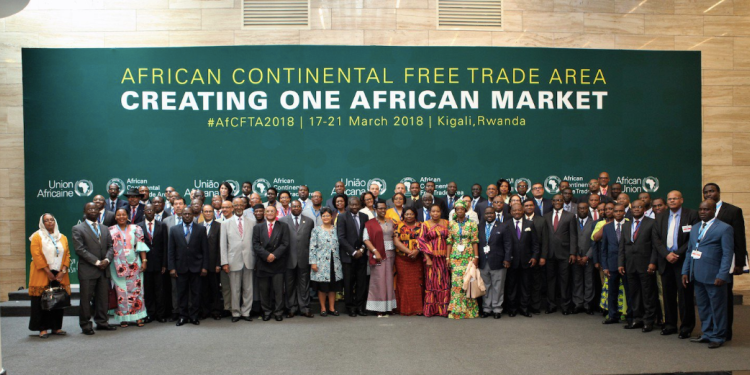Kenya has listed 14 merchandise and service sectors for trade under the African Continental Free Trade (AfCFTA), as it becomes among the first six to pilot the continental pact.
This comes even as countries continue to push to clear pending issues on preferential Rules of Origin on sensitive goods which account for 7% of the tariff lines. The stalemate is on textile and apparel, sugar and sugar products, goods produced in Special Economic Zones (SEZs), edible oils and motor vehicles.
Nevertheless, member states have agreed on 88.7% tariff lines of about 6,000 products, open for trade on preferential terms.
Industrialization, Trade and Enterprise Development CS Betty Maina yesterday said Kenya’s prioritised sectors in merchandise trade include agriculture, livestock and fisheries, manufacturing, handicrafts, mining, oil and gas.
Priority export sectors under services trade are business including professional services, tourism, education, health, financial services, ICT, cultural and sports services; and transport and logistics.
Kenya and Ghana were the first countries to ratify the AfCFTA and to deposit instruments of ratification with the AU Commission, after the agreement was adopted by the AU Extra-Ordinary Summit on March 21, 2018 in Kigali, Rwanda.
Despite the launch of the commencement of trade in January 2021, commercially meaningful trade was yet to commence.
To date, 54 African Union (AU) member states have signed the AfCFTA agreement with 49 having ratified it, making them eligible to trade.
However, only six countries– Ghana, Cameroon, Egypt, Rwanda, Tanzania and Kenya are leading the pact in the pilot phase, with volumes expected to move as early as October.
See Also:




